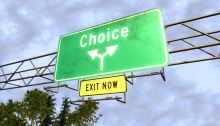The Economic Problem
Over the years, economics has taken on many different roles than the intended scientific discipline of human action. The study of economics has been broken up into separate, and often competing “schools” of thought. Specifically, the understanding of what economics describes, how it is used to understand certain activity and how to apply economics in…




